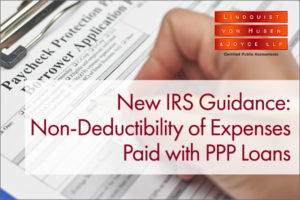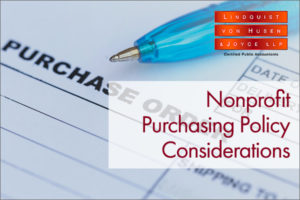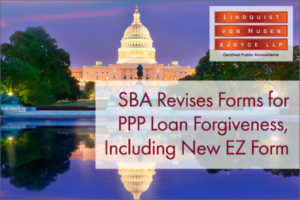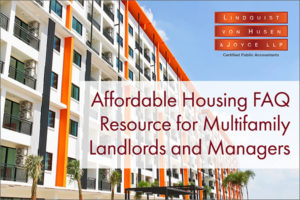
New IRS Guidance: Non-Deductibility of Expenses Paid with PPP Loans
The Paycheck Protection Program (PPP) created under the Coronavirus Aid, Relief, and Economic Security (CARES) Act provides loan funds to small businesses in order to help them pay eligible expenses (payroll costs, mortgage interest, rent, and utilities). These covered loans are to be fully forgiven and not to be treated as income to the loan







